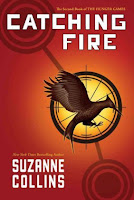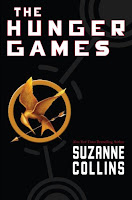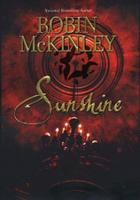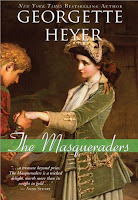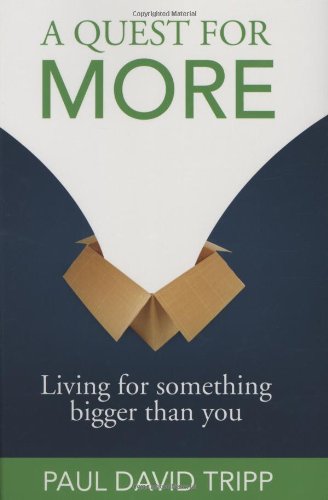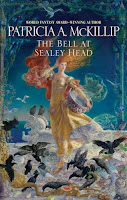Reynie Muldoon is a clever, talented, and well-read young man, which makes him a bit of an outcast at the orphanage where he lives. He's outgrown the schooling they offer, and the man in charge refuses to let him go to an advanced school, so he has a tutor-- and he and Miss Perumal spend their mornings reading the newspaper together and conversing in Tamil, which she is teaching him. One morning, they spot an ad in the paper addressed to talented children and offering "special opportunities." They are both excited by this, so Reynie goes to take the first in a series of tests to see what this mysterious opportunity might be. Reynie is the only child from his group to make it through the first round of testing, and then there are some odd circumstances surrounding the second test-- a girl who lost her pencil down the grate and who claims to have the answers to the test; after the very difficult test, which turns out to be a kind of puzzle (Reynie figures it out in part because he follows the directions carefully), Reynie meets two other children who have been through this series of tests, and when they compare notes Reynie figures out that the lost pencil and offers of cheating are also a strange part of this test. Finally, after a few more strange tests, they meet Mr. Benedict and are told why he recruited the four of them (the fourth lagged behind), and what it is he hopes they will help them with-- which is where they adventure really begins.
On this page:
Saturday, December 25, 2010
Friday, December 24, 2010
While going about his usual business, Death notices that something is wrong - that the Hogfather (the Discworld equivalent to our Santa Claus, with a sleigh drawn by huge pigs or boar named Tusker, Snouter, Gouger, and Rooter) is in danger, in fact very near to whatever the equivalent of death is for an immortal being. At the same time, a group of the Auditors has come to the Assassin's guild in Ankh-Morpork with an unusual request: end the Hogfather. But they offer enough money, and there happens to be an unusual member of the Assassin's guild who as a hobby has considered how one might end the Hogfather, the Tooth Fairy, or even Death-- so Mr. Teatime undertakes this request. In the meantime, Death decides to fill in for the Hogfather-- leaving footprints and presents and removing the treats left for the Hogfather (his assistant, Albert, is along with him eating the goodies and helping Death to be more jolly), in order to help instill belief in the Hogfather to help him survive. As he's doing his rounds (dressed in a red suit with a pillow and a fake beard), Death stops by the house where his granddaughter Susan works as a governness-- and warns her very carefully that she shouldn't get involved, of course knowing full well that this will result in her doing exactly that.
Read more...Tuesday, November 09, 2010
What an intense, powerful book. After the crazy escape/rescue from the Quarter Quell, Katniss finds herself recovering in the fabled District 13, where they want her to be their "mockingjay", their symbol of revolution. Katniss finally agrees, but then discovers that they want to dress her up and make her look good so they can use her for propaganda videos: which seems not all that different from the way the Capitol used her. But Katniss isn't an actress, and she sounds terrible saying the words they want to put in her mouth-- so finally Haymitch has the brilliant idea to send Katniss out to do things, visit the districts that have rebelled, and just film her doing what comes naturally to her. This works out pretty well, but as the rebellion goes on and more and more districts break free from the hold of the Capitol, Katniss sees more of the war and more of District 13, and begins to wonder who she can trust, and whether or not the new regime would be that different than the old one.
District 13 is a tough place for Katniss to live-- very regimented and orderly, scheduled and efficient, living underground and away from nature most of the time. With their limited resources and a bombed district above-ground, they have had to live like that to survive, and they've done fairly well, although it is hard for Katniss to come to terms with the idea that District 13 had a cease-fire with the Capitol while the other districts suffered-- they agreed to be left alone in exchange for letting the Capitol make the other districts think that 13 had been completely destroyed.
War changes people, and we see that in many characters in this book, just as having to fight in the Hunger Games changed Katniss and Peeta. One of the most heartbreaking story-lines in this book is what happens to Peeta-- he and a few others were left behind when Katniss was rescued, and Katniss sees him on TV as a mouth-piece for the Capitol-- first well-fed and healthy, but then more and more gaunt, confused, and unhealthy. Finally they are able to rescue Peeta and Johanna, but they have been tortured, and sweet, gentle Peeta has been brain-washed into something cold and hateful. Another character who we see changed by war is Gale-- he turns his cleverness in fashioning traps for hunting animals towards bombs and other mechanisms of war; from the first book in the trilogy there were hints about his anger at the Capitol, but we see that hardness come out in his actions in this book. Towards the end, the parallels between war and the Hunger Games are made explicit when Katniss, Finnick, and the rest of their team must work their way through the Capitol, which has been laced with mines and traps, just like the arena in the Games.
There are hints occasionally throughout the book that the leadership of District 13 may be no better than the Capitol-- in fact, I wondered if the name of President Coin was a hint towards that; she is just another side of the coin of the evil and manipulative President Snow. There is a chilling moment late in the book when a question is posed that makes the human capacity for evil explicit, when a new round of Hunger Games is suggested as a possible solution to deal with the horror and death of the war.
The world Collins has created in this trilogy is so rich and full and believable (if horrible in some ways). The mockingjay of the title is one of those wonderful details that has been present since the first book, when Madge pins a gold pin onto Katniss' dress before she leaves on the train to go to the games. The mockingjay becomes an apt symbol of the revolution because it is a cross between the mockingbird and the jabberjay that the Capitol engineered as a bird-spy, which the rebels figured out and turned against them-- and the mockingjay is a reminder and a sign of that technology living on in another form, in a way that the scientists of the Capitol could never predict or control. In this book we also get the explanation for the source of the name of the country of Panem-- it's taken from the Latin panem et circenses, bread and circuses, which refers to appeasing the populace with food and spectacle, drawing a parallel between the Colosseum of Rome and the Hunger Games of Panem.
As the book ends, we get a glimpse of Peeta, Katniss, and Haymitch, and their life after the turmoil of the events of the book. I was glad to read some small part of their story, and what they did to mourn and remember the things they went through and the people that they lost, and to think of them wrestling with how to tell their story, the awful things they did, to the next generation. Afterwards, it struck me that the people who were victors in the Hunger Games and instrumental in winning the war ended up pretty far-removed from the actual running of the government after the fact; and I can't help but think, perhaps this is because the kind of people who can win these deadly games (war or otherwise) aren't the ones you want holding the pieces after.
| Title: | Mockingjay |
|---|---|
| Author: | Suzanne Collins |
| Date published: | 2010 |
| Genre: | Young Adult / Science Fiction |
| Series: | The Hunger Games Trilogy |
| Number of pages: | 390 |
| Notes: | borrowed from Catey |
Saturday, November 06, 2010
I had heard that the sequel to The Hunger Games (which I read last month) wasn't quite as good or as enthralling as the first book in the trilogy-- but I found this book quite engaging and easy to read, and almost as hard to put down. We find Katniss and her family more or less settled into her posh house in the nearly unoccupied Victor's Village of District 12, with running water and a telephone but no one to call; she still hunts with Gale, but not because she or her family need it, but his does-- and she needs something to do, to keep herself busy. We pick up the story just before Katniss and Peeta go on the road to visit all of the districts, in a terrible victory tour that reminds all the other districts and families and parents what they lost-- but Katniss gets a secret, threatening visit from President Snow to tell her, she'd better continue pretending to be crazy in love with Peeta, because otherwise... Katniss' clever solution to keeping both herself and Peeta alive at the end of the last book has become a symbol of rebellion, of out-witting the all-powerful Capitol; Snow threatens her family and friends if she doesn't do everything she can to discourage that view of things, but as they make their way through the districts, Katniss begins to realize maybe it doesn't matter what she does or says, she can't convince anyone or change anyone's mind...
Read more...Saturday, October 30, 2010
This story begins with a wizard being killed, which apparently is quite difficult to do safely. In this case, the people were given very specific instructions: don't spill his life-blood, don't let him speak a curse, don't let him use his hands to work magic. However, there was one thing they didn't account for: as he is bound and dying, the sun comes out and this wizard casts some unspoken spell to free his shadow. Some time later (years, perhaps), a traveling peddler named Crocken passes near the spot where the wizard dies, and he is persuaded/coerced/bargained/threatened into taking on this shadow and carrying it with him to the far-off country of Armyn.
Monday, October 18, 2010
Shortly after I started reading this book, I thought I recognized the standard hero and heroine of a Grace Livingston Hill novel-- the beautiful, angelic, unspoiled but well-educated and refined Minister's daughter, Lynn; the tough but sweet, good-looking neighbor boy, Mark Carter, who grew up with her but is now in some kind of trouble and estranged for her (of course they must be meant for each other); the spoiled rich boy, Laurence Shafton, who may be a slight distraction for the good girl-- she won't care for his money or fine things, but he will be drawn to this beautiful, religious girl and maybe it will change him for the better. That story does play out rather like I expected (although the characters have more depth than the caricatures I've suggested), but I was pleasantly surprised by this story: as much as it is about Lynn and Mark and Laurence, it is really Billy's story-- the young, tough neighborhood kid who looks up to Carter (or "Cart", as Billy calls him) and loves Miss Lynn's Sunday School lessons. In trying to earn some extra cash, Billy gets tangled up in some bad business and messes things up for others around him-- and as he tries to make things right, he seems to learn and finally understand true grace.
Saturday, October 16, 2010
It's a little hard to believe that this intense, violent story set in an oppressive, dystopic world was written for young adults, but now that I've read it I can understand why the series is so popular. The story is narrated by Katniss, a teenager who's provided for her family (mostly by illegal hunting) ever since her dad was killed in a mine explosion. They live in District 12, one of the poorest districts of the nation of Panem, in what used to be North America. Out west beyond the Rockies is the luxurious, wealthy Capitol city-- but the people of the districts are oppressed and kept poor even as they work for all the goods that supply the Capitol. As punishment for an old rebellion that left a thirteenth district completely destroyed and as a reminder of who has the power, every year each district must send two of their children-- a boy and a girl-- as "tributes" to participate in the Hunger Games, something like a reality TV show in a huge (but controlled) outdoor setting where the children must fight to the death. Katniss's little sister, Prim's (the only person Katniss is sure she loves) name is the one that is drawn-- so Katniss volunteers to take her place. Of course, that's only the beginning of what is quite an engaging, page-turning, compelling story.
Read more...Friday, October 15, 2010
When Sunshine is getting ready to go into battle with Con, and expecting to die (for about the third time in this book), she thinks about what to do with the two days she has left-- and one of the options that crosses her mind is reading:
Reread your favorite novel, the one you only let yourself anymore when you're sick in bed. I might have enjoyed this more, since I'm never sick, if death didn't seem like a very bad trade-off.This caught my eye because I was actually sick in bed re-reading Sunshine. I don't know if that makes it my favorite book (it is definitely up there), but this book was such a wonderful, complete distraction from my own misery to escape into Sunshine's crazy world (and in particular her humorous, self-deprecating attitude that comes through in the narrative as she provides commentary). It feels like such a full, real world too-- populated with fascinating characters, and details of slang and history and myths, and since we get everything filtered through Sunshine's perspective, we don't know which myths are true and which aren't. Sunshine lives in a dangerous world that I'm not sure I'd want to visit-- I'd love to sample her cinnamon rolls and crazy decadent desserts at Charlie's coffeehouse, but I'm not sure I'd want to navigate the dangers of Old Town to get there.
Sunday, August 29, 2010
Prudence and Robin Tremaine are a brother and sister fleeing to London, and because Robin was involved in the Jacobite rebellion on the wrong side, they disguise themselves-- the tall Prudence pretends to be a young man, and the slight, elegant, talented actor Robin pretends to be the sister. On their way to London, they run into flighty young Letitia, who is eloping with a man because she thought it would be quite an adventure, but he turns out to be rather a brute and after her money. Robin and Prudence manage to rescue her shortly before Letitia's family friend, Anthony Fanshawe comes to help her-- a man so large that Robin teasingly calls him "the mountain" to his sister (a man large enough for so tall a girl). Anthony takes the young lad (Prudence) under his wing when they go to London, introducing him around and sponsoring him at the gentleman's club; meanwhile, Robin and Letitia become rather intimate friends (Robin has fallen in love with the silly girl, so on a few occasions-- like a masked ball-- he manages to be her mysterious, romantic hero). Eventually, Prudence and Robin's father comes to town-- he's an adventurer and master of disguise, and perhaps a bit of a con man, so even they aren't sure whether or not they can believe him when he claims to be the long lost son and heir to a nearby estate.
Read more...
Lark
on
Sunday, August 29, 2010
add a comment
![]()
Sunday, August 22, 2010
This book is somewhat of a sequel to These Old Shades (which I read recently), as it follows Dominic Alastair, Marquis of Vidal. The "cub" of the title, he is the son of the Duke of Avon (who was known as "Satanas" to some, hence the title) and the fiery Leonie, and Heyer presents Vidal as a pretty believable mixture of his parents. He has his father's lack of morals and devil-may-care attitude, but he has his mother's quick temper instead of his father's subtlety and deviousness. He gets in a bit of trouble because he wounds someone in a duel-- and, what apparently makes it worse, he didn't even bother to go through the proper forms, but had the duel right then and there in the house where they were gambling. His father is quite angry with him and decides to send him to France, but this is mostly because Leonie is upset rather than that Vidal may have killed a man. Since Vidal is used to having pretty much whatever he wants, he decides to take along with him the pretty bourgeoisie girl who he has been flirting with-- but, of course, things don't go exactly as planned.
Read more...
Lark
on
Sunday, August 22, 2010
add a comment
![]()
Sunday, August 15, 2010
One night as Justin Alastair, Duke of Avon is walking through the streets of Paris, he collides with a poor young red-headed boy running from his rough older brother. On a bit of a whim, because something about the child's Titian hair and blue eyes reminds him of an enemy, Alastair buys the lad from the older brother and makes the child, Léon, his page. Alastair has quite the reputation for his cunning and lack of morals, such that he is known by some as "Satanas", and his good friend Hugh Davenant disapproves of Alastair taking this child with him everywhere, even serving him at gambling houses and other places of ill-repute. Of course, there is a great mystery about Léon, and it turns out to be quite an interesting story-- and the audience gets to be at least partly in on Alastair's knowledge and plans long before the other characters in the book.
Read more...
Lark
on
Sunday, August 15, 2010
add a comment
![]()
Sunday, July 11, 2010
Jernau Morat Gurgeh is one of the best game players in The Culture, a space-faring society of advanced "genofixed" humans and artificially intelligent machines - he is such a gamer that he has taken the name "Morat", meaning game-player or player of games. But he's a little bit bored with his life-- nothing is that challenging or engaging anymore-- and his old family friend, the drone Chamlis Amalk-ney, offers to ask Contact to see if there might be something interesting he could do. When they do come up with an offer, it involves considerable travel, and Gurgeh is rather a home-body, preferring not to leave his home orbital, so he turns them down. However, not long after, he is manipulated by the rogue drone Mawhrin-Skel (who was intended for the Special Circumstances branch of Contact but then deemed unfit), and he is black-mailed and maneuvered into accepting the offered task that Contact had suggested, which involves traveling to a remote civilization where their society is obsessed with and run by a complicated strategy game called Azad.
Lark
on
Sunday, July 11, 2010
add a comment
![]()
Saturday, July 03, 2010
A young girl in a lonely part of Montana buries her younger brother, who had been the last living member of her family, says the prayer her mother said over the other family graves, and then sets out on horseback by herself fleeing from the rough young men her brother had been hanging out with-- in particular their leader, the man she suspects killed her brother, and who wants to claim her for himself. On her second day of travel, she sees another man on horseback pursuing her, and she flees him as well because her mother had told her all men are the same, dangerous drunks. While she sleeps, the man catches up to her-- but he is in fact a city boy who had come out West with some friends to get away from his troubles (the society girl he was in love with wouldn't have him), and he had gotten separated from his party and lost in the wilderness. She has some food and the survival skills to get them through to civilization, and when he hears her story of the man she is running from, he naturally wants to help and protect her. They travel together for a while, once even drawn to a Christian Endeavor meeting by the music, which keeps them hidden from the ruffians who go by while they are inside, and the girl is encouraged by words from scripture of the religion she had scarcely known anything of. They make it safely to a city big enough to have a train station and the young man, George, learns via telegram that his mother is seriously ill, so he sells his horse and returns-- he encourages his young friend, who he has come to admire, to come with him, but she refuses because she believes he is promised to another, and a kind woman at a farm where they stayed overnight had told her it wasn't proper to travel alone with a man. They go their separate ways, and he only knows her first name-- Elizabeth.
Read more...
Lark
on
Saturday, July 03, 2010
add a comment
![]()
Sunday, June 27, 2010
Sir Tristram Shield comes to visit his dying uncle Sylvester, the Lord of Lavenham, and since it is Sylvester's wish, Tristram agrees to marry his younger, half-French cousin Eustacie. Tristram is a practical, unromantic kind of gentleman, so to Eustacie he seems completely unfeeling when he won't follow along in her flights of fancy at how sorry he should feel to see her going to the guillotine wearing a white dress (she was brought out of France long before there was any danger of that), or when she asks him to ride at full-speed to her deathbed when she dies in childbirth-- he replies quite practically that he wouldn't go out on such an occasion, but this doesn't suit Eustacie at all. Quite quickly, Eustacie convinces herself and her maid that she will be completely miserable married to Tristram (she's probably right-- and she would likely make him miserable as well), so she decides to run away and become a governess (her only qualification for such a job is that she speaks French). As she makes her way out in the night, she runs into a group of smugglers (or "free-traders")-- and their leader is, of course, her disgraced cousin Ludovic Lavenham, heir to Sylvester. Everyone assumed he had fled the country due to the suspicion that he murdered a man who took a family heirloom, a talisman ring, in payment for gambling debts and then would not return it. When Ludovic, Eustacie, and Tristram all end up together again and Tristram and Ludovic finally believe each other that neither of them killed the man, they set about finding the person who did-- and in particular, finding the talisman ring that will clear Ludovic's name.
Read more...
Lark
on
Sunday, June 27, 2010
add a comment
![]()
Tuesday, June 22, 2010
14-year-old Sophie Amundsen is a normal school-girl who discusses normal school-girl things with her friend Joanna-- until she gets an unusual note in her mailbox, which begins her on a course of studying the history of philosophy with her equally unusual teacher, Alberto Knox. The first few lessons begin with thought-provoking questions like who are you? and where does the world come from?, or why is the Lego the most ingenious toy in the world?. These simple questions get Sophie to wondering, and then are usually followed up by a lesson-- initially in written form, later on via in-person discussions with Alberto Knox. In addition, to the philosophy course, Sophie starts finding postcards and other things that belong to a girl she's never heard of, Hilde Moller Knag-- and something about the postcards doesn't quite add up (they are sent from Lebanon but apparently took no time to get to Norway, Hilde's birthday is the same as Sophie's, Sophie is being relied upon to deliver the postcards, etc.). About half-way through the book, when Sophie and Alberto are discussing the philosophy of Berkeley (who believed that the only thing we could be certain of were our perceptions and not physical reality, and thus we exist in the mind of God), they discover that they (Sophie and Alberto) are characters in a book that Major Knag is writing for his daughter Hilde-- so they exist only in his and Hilde's imaginations.
Lark
on
Tuesday, June 22, 2010
add a comment
![]()
Wednesday, May 05, 2010
I read this for church, which is a little weird to begin with (it's odd to hear sermons connected or organized based on anything other than the Good Book), and I found it so poorly written and edited that I really struggled with finding much of anything that was spiritually valuable. The basic premise is that Christians have gotten so accustomed to living in the day-to-day life of the world that we've lost sight of the larger Kingdom that we have been invited to be a part of. Tripp expresses this repeatedly by saying that we have shrunk "the size of our lives to the size of our lives", which doesn't work for me because it just seems like a nonsensical tautology. It finally occurred to me that the poor writing is, in part, due to the use of a rhetorical preaching style (which at times shifts into an almost colloquial, conversational style), so that the words on the page might actually communicate something meaningful if they were spoken aloud and accompanied by gestures and facial expressions.
Lark
on
Wednesday, May 05, 2010
add a comment
![]()
Wednesday, March 24, 2010
Mirasol was a beekeeper and woodskeeper until the Master and Chalice of the Willowlands were both suddenly and violently killed, without heir and apprentice. The land chose Mirasol to be the next Chalice, and so she had to step into the official role, second in the Circle, without any training or apprenticeship (and to the apparent dismay of the remaining members of the Circle). The Chalice is a magic user and a cup-bearer who mixes drinks to bind, or connect, or help make decisions, and is part of many rituals of the ruling of the demesne, and who works with the Master of that demesne to protect the land and the people. But the Master that Mirasol must learn to work with is the younger brother of the dead Master, who was sent away to become a Fire Elemental Priest six years ago. The Grand Seneschal sent for him out of desperation, and he returned out of loyalty and responsibility to the land; but he had gone far enough into the priesthood that he is no longer quite human, and certainly looks and moves very strangely, with blackened skin and reddish eyes. However, Mirasol is also different than any other Chalice; usually their magic runs in wine or water, or occasionally milk (and, in ancient, more violent times, occasionally blood); but the power of the Chalice manifests itself in Mirasol's honey and her bees.
Read more...Tuesday, February 02, 2010
Every night in the small harbor town of Sealey Head, just as the sun goes down, an invisible bell tolls. It's happened every day for as long as any of the inhabitants can remember, and most of the inhabitants don't even notice it anymore. But a few of the younger people are fascinated, or perhaps even obsessed with it-- Judd Cauley, the innkeeper's son; the merchant's daughter, Gwyneth Blair, who sits at her little desk in the attic and writes story after story trying to make sense of the bell; and even a visiting scholar from the city, Mr. Ridley Dow. Emma, who works as a scullery maid at Aislinn House, also knows there is something magical about the place-- ever since she was a child, sometimes the doors in the house open onto a castle in some other place, where she sees a girl near her own age, a princess named Ysabo.
Tuesday, January 19, 2010
In a post-apocalyptic California, with the U.S. in political and economic chaos, Lauren Oya Olamina builds a small community called Acorn, where people can live and survive and learn. But for her, this small community is also an opportunity to spread the ideas of the religion of Earthseed, which she created (she feels that rather she discovered it, as something that was already true)-- that "God is change", but change can be shaped and guided, and that humanity has a destiny to go out and take root among the stars, to spread the seed of Earth, which gives a much deeper purpose and a reason for learning almost any field of study, since it is a means to that destiny. Lauren Olamina is the daughter of an African-American preacher, and the novel is bookended with the Biblical story of the parable of the talents-- she remembers one of the last sermons she heard her father preach, on that text, and it ends by quoting the passage.





